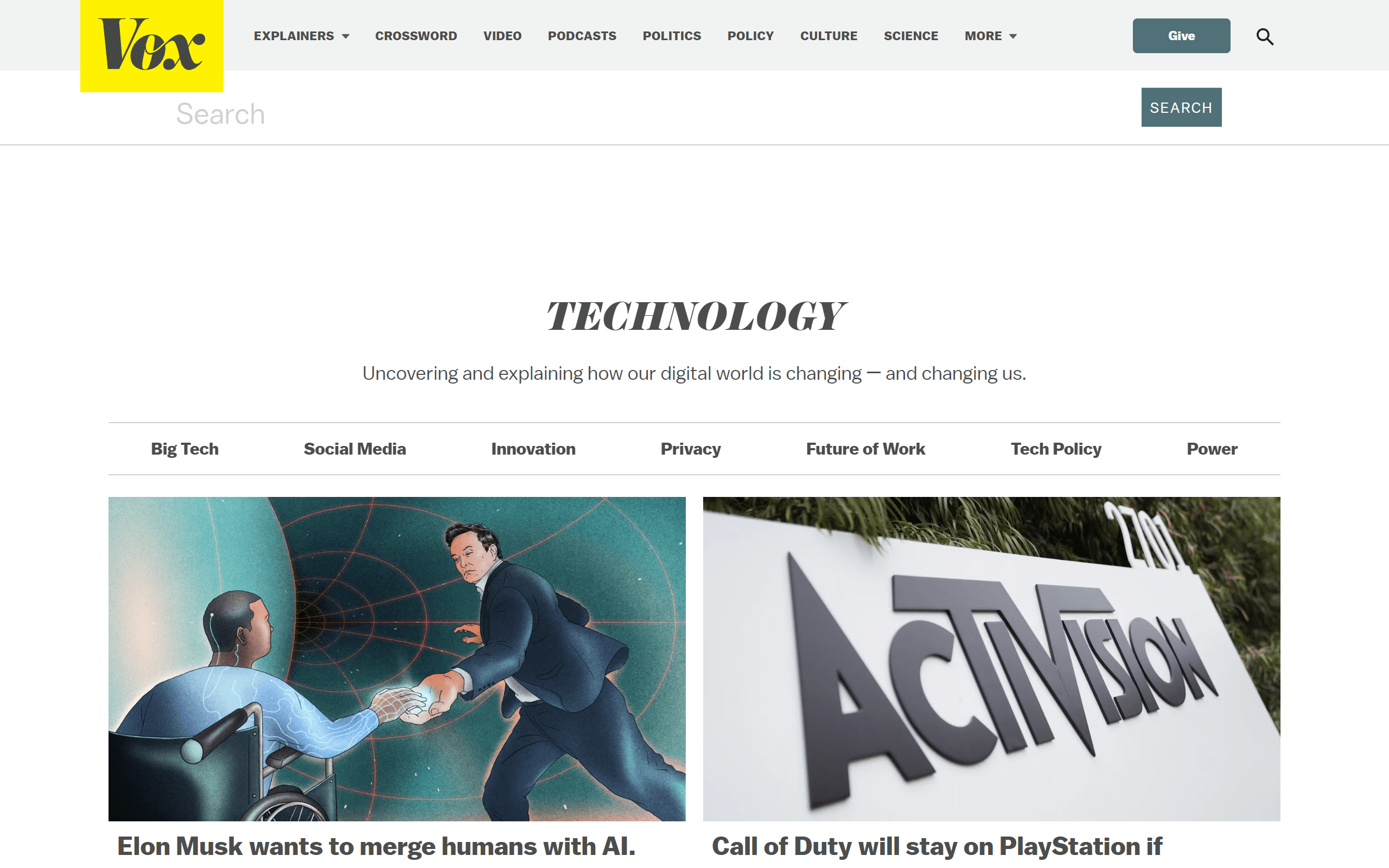Discover Hidden Treasures in the Industry with the Best tech blog Suggestions
Discover Hidden Treasures in the Industry with the Best tech blog Suggestions
Blog Article
Just How Blockchain Modern Technology Is Revolutionizing Information Safety
Blockchain innovation is fundamentally modifying the landscape of information security by presenting a decentralized structure that assures enhanced openness and durability. Unlike typical systems, which depend on central information repositories, blockchain disperses data throughout a network, decreasing susceptabilities and solitary factors of failure. Making use of sophisticated cryptographic strategies guarantees that information continues to be tamper-proof, promoting trust among stakeholders and customers. As markets swiftly adjust to this innovation, questions emerge about its broader effect and prospective obstacles. What effects does this change hold for future information security techniques and governing frameworks? The answers may amaze you (Best tech blog).
The Fundamentals of Blockchain
Blockchain technology, a cutting edge concept in electronic information management, essentially changes just how info is kept and protected. At its core, a blockchain is a dispersed journal that tapes deals across a network of computer systems, guaranteeing transparency and immutability.
Key to understanding blockchain is the hashing procedure, which secures deal information right into an unique alphanumeric code. This cryptographic function ensures that any type of change in the purchase information results in an entirely various hash, thereby guarding against tampering. The consensus system, another critical component, confirms and validates new transactions with a network of nodes, therefore getting rid of the need for a central authority.
Additionally, blockchain's append-only framework makes certain that information, once included, can not be removed or changed. This particular assurances a permanent and verifiable document of transactions, cultivating depend on amongst individuals. Consequently, blockchain provides a durable framework for data honesty, using sectors a trustworthy technique for tracking and managing digital information in a safe and secure, transparent way.
Decentralization and Safety And Security
Decentralization, a core concept of blockchain technology, substantially improves information security by dispersing control across a network instead than relying on a particular, central entity. By spreading information throughout countless nodes, blockchain guarantees that even if one node is compromised, the whole network continues to be protected.

Moreover, decentralization equips individuals with greater control over their information. Each individual in the network has accessibility to the entire blockchain, permitting them to validate and investigate purchases individually. This transparency cultivates count on among customers, as they do not have to rely upon a main authority to guarantee data honesty. On the whole, decentralization is critical in improving information safety in blockchain networks.

Cryptographic Methods
At the heart of blockchain technology, cryptographic methods play a crucial role in guarding data, making sure both discretion and honesty. These techniques are foundational to the blockchain's capability to securely tape purchases in a decentralized fashion. Cryptography in blockchain uses a mix of asymmetric and symmetric formulas to encrypt data, making it accessible only to licensed celebrations - Best tech blog. Public and exclusive crucial sets are main to this process, permitting protected authentication and identity confirmation without revealing sensitive information.
Hash features are one more essential part, changing input information right into a fixed-size string of personalities, successfully developing an one-of-a-kind electronic fingerprint for each and every block. This makes certain that any kind of effort to change the data will certainly cause a completely various hash, therefore maintaining the immutability of the blockchain. Furthermore, digital signatures confirm the credibility and honesty of transactions, providing a layer of non-repudiation.
The decentralized nature of blockchain, incorporated with durable cryptographic techniques, gets rid of the demand for middlemans, decreasing prospective susceptabilities. As blockchain innovation develops, advancements in cryptography such as zero-knowledge proofs and homomorphic file encryption continue to boost security steps, better fortifying information protection in this revolutionary electronic ledger system.
Use Cases Throughout Industries

In the healthcare market, blockchain makes sure the secure storage space and sharing of person documents, advertising interoperability while securing sensitive data from unauthorized gain access to. This technology empowers clients with control over their case history and helps with seamless coordination among anchor doctor.
Supply chain management benefits substantially from blockchain's immutable ledger, which makes certain traceability and credibility of products from origin to customer. By boosting transparency, blockchain helps reduce problems such as counterfeiting and dishonest sourcing.
Additionally, blockchain's decentralized nature is improving the power market by allowing peer-to-peer energy trading, where consumers visite site can deal excess renewable resource directly. This cultivates a much more sustainable and efficient power environment.
In the realm of copyright, blockchain provides a tamper-proof system for designers to register and protect their jobs, making certain rightful attribution and fair settlement. These diverse usage situations underline blockchain's duty as an essential force in redefining information safety and security across sectors.
Future of Information Security
As we aim to the future of data defense, blockchain technology is positioned to play a pivotal function in safeguarding digital details. With its decentralized and immutable attributes, blockchain uses a robust framework for protecting delicate information against unauthorized gain access to and cyber dangers. This technology makes sure that as soon as information is recorded, it is nearly difficult to modify without detection, hence offering a substantial benefit over traditional information storage space methods.
The combination of blockchain with various other sophisticated innovations, such as expert system and the Web of Things (IoT), is expected to improve data protection approaches further. By leveraging smart contracts, companies can implement and automate protection protocols, decreasing human mistake and increasing efficiency. Additionally, blockchain's capacity to supply deducible and clear transactions will bolster trust and liability in data management practices.
As regulatory landscapes develop, blockchain's compliance-friendly nature will certainly come to be significantly appropriate. It can assist organizations meet rigid information security guidelines, such as the General Data Defense Regulation (GDPR) and the California Consumer Privacy Act (CCPA), by offering verifiable records of data handling tasks. Eventually, blockchain's unique features placement it as a transformative device in the continuous pursuit to protect the digital globe versus ever-evolving cyber threats.
Verdict
Blockchain modern technology represents a paradigm shift in information safety by leveraging decentralization and cryptographic methods to boost openness, depend on, and data honesty. Its capability to eliminate single factors of failure and employ agreement mechanisms substantially lowers the threat of fraud helpful resources and cyberattacks. This ingenious structure not only equips users with better control over their data yet additionally lines up with regulatory conformity. As cyber risks develop, blockchain emerges as a crucial tool for durable information security throughout various markets.
Blockchain modern technology is essentially altering the landscape of information security by introducing a decentralized framework that promises improved openness and resilience. Unlike typical systems, which count on centralized data databases, blockchain disperses information across a network, lessening susceptabilities and solitary points of failure.Decentralization, a core principle of blockchain innovation, considerably enhances information security by distributing control across a network rather than relying on a singular, central entity.At the heart of blockchain innovation, cryptographic methods play a critical role in securing information, ensuring both privacy and honesty.Blockchain modern technology stands for a paradigm change in data safety and security by leveraging decentralization and cryptographic techniques to improve openness, depend on, and data integrity.
Report this page